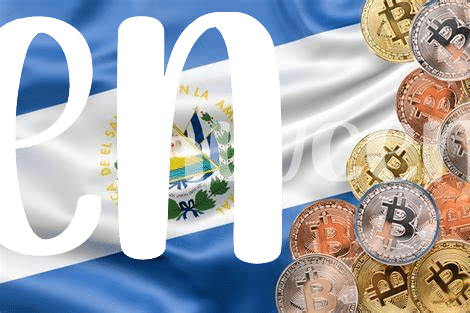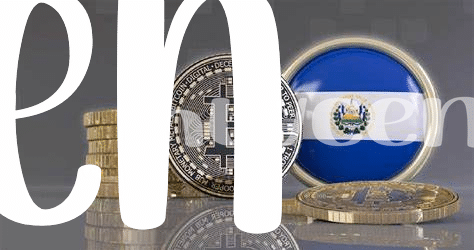El Salvador’s Pioneering Adoption of Bitcoin 💡

El Salvador’s move to embrace Bitcoin as legal tender marked a significant milestone in the realm of cryptocurrency adoption. By becoming the first country to formally adopt a digital currency, El Salvador set a precedent that captured global attention. This pioneering step not only sparked discussions on the practicality and implications of using Bitcoin in everyday transactions but also raised questions about the future direction of financial systems worldwide. The bold decision undertaken by El Salvador highlighted the potential for cryptocurrencies to reshape traditional monetary practices, signaling a shift towards digital innovation. As the world witnessed this uncharted territory being navigated, it opened up a new chapter in the ongoing dialogue surrounding the intersection of technology and finance.
Impact on Global Cryptocurrency Regulations 🌍
El Salvador’s pioneering adoption of Bitcoin has significantly influenced global cryptocurrency regulations. By becoming the first country to embrace Bitcoin as legal tender, El Salvador has sparked discussions and actions among other nations to reassess their policies towards cryptocurrencies. This move has initiated a domino effect, prompting regulators worldwide to consider the implications and potential benefits of incorporating digital currencies into their frameworks. The impact on global cryptocurrency regulations goes beyond just regulatory adjustments; it has also catalyzed a reevaluation of traditional financial systems and the role of decentralized currencies in shaping the future of global finance. As countries navigate the complexities of regulating digital assets, El Salvador stands at the forefront, showcasing how a small nation can have a substantial impact on shaping policies that have far-reaching consequences in the cryptocurrency landscape.
Challenges Faced by El Salvador in This Role ⚔️

El Salvador has encountered various obstacles in its groundbreaking venture into embracing Bitcoin as legal tender. Among the key challenges faced by the nation are managing the integration of cryptocurrency into its existing financial infrastructure, enhancing digital literacy among its population, and addressing concerns related to price volatility and potential risks associated with technological dependencies. Additionally, El Salvador has faced criticism and skepticism from both within the country and internationally, with some questioning the government’s decision and others expressing concerns about the implications of such a bold move on a global scale. Overcoming these hurdles requires a delicate balance between innovation and risk management, as well as ongoing adaptation to address evolving complexities in the rapidly changing cryptocurrency landscape.
International Responses to El Salvador’s Actions 🌎

In response to El Salvador’s bold move towards adopting Bitcoin as legal tender, the international community has shown a mix of reactions. While some countries have expressed support and interest in exploring similar paths, others have raised concerns about the potential risks and challenges associated with such a significant shift in monetary policy. The varying responses highlight the divergent views and approaches towards embracing cryptocurrencies at a national level.
For further insights on upcoming regulatory changes for Bitcoin in Egypt, visit upcoming regulatory changes for Bitcoin in Egypt to stay informed on the evolving landscape of cryptocurrency regulations worldwide.
Potential Future Implications for Cryptocurrency Landscape 💭
El Salvador’s forward-thinking embrace of Bitcoin is reshaping the global cryptocurrency landscape, paving the way for potential future implications that could reverberate across the industry. As more countries observe and analyze the outcomes of El Salvador’s bold move, they may be inspired to explore their own pathways towards integrating digital currencies into their economies. This could lead to a domino effect, with increased acceptance and adoption of cryptocurrencies on a larger scale. Additionally, the success or challenges faced by El Salvador in navigating this new terrain will serve as crucial lessons for other nations considering similar actions, influencing the evolution of regulations and policies worldwide. The ripple effects of El Salvador’s initiative have the potential to set a precedent for how cryptocurrencies are perceived, utilized, and regulated on a global scale in the foreseeable future.
The Evolving Role of Smaller Nations in Shaping Policies 🔄

Small nations are increasingly playing a significant role in shaping global policies, particularly in the realm of cryptocurrency regulation. Their actions are not only influencing the approaches taken by larger nations but also highlighting the importance of inclusivity and diversity in decision-making processes. By taking bold steps and voicing their perspectives, smaller countries are showing that size does not limit the impact they can have on shaping the future of technologies like cryptocurrencies. As they navigate the complex landscape of regulations and innovation, these nations are proving to be agile and proactive in adapting to the evolving needs of the digital economy. This trend underscores the changing dynamics of international relations, where every voice, regardless of size, can reshape the trajectory of policies that have far-reaching consequences. Embracing the diversity of perspectives and approaches brought forth by smaller nations is essential for fostering a more robust and resilient framework for the global cryptocurrency landscape.
Upcoming Regulatory Changes for Bitcoin in Denmark with anchor “Upcoming Regulatory Changes for Bitcoin in Djibouti”
